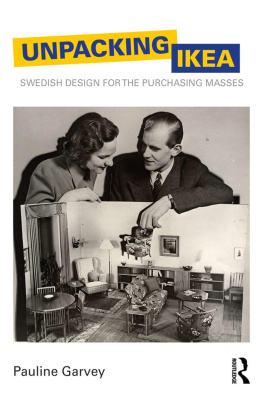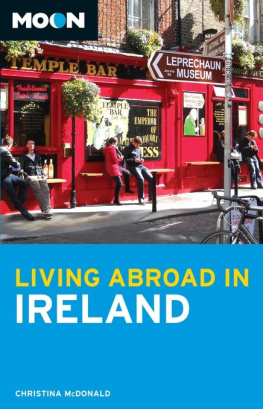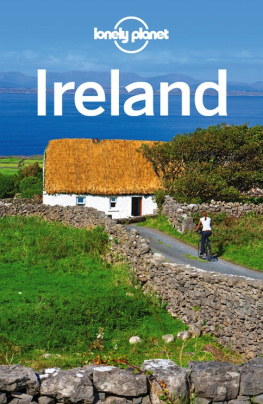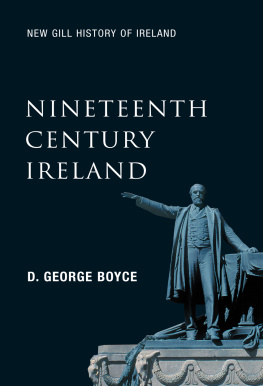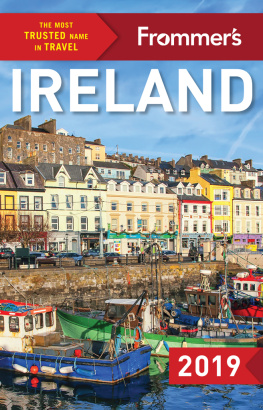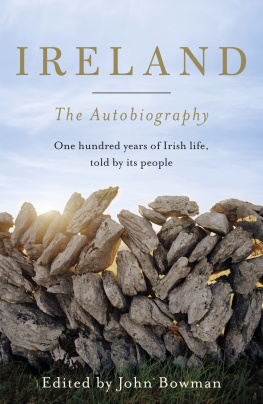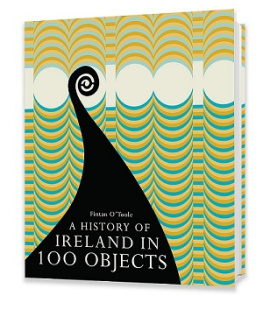Ageing with Smartphones in Ireland
Ageing with Smartphones in Ireland
When life becomes craft
Pauline Garvey and Daniel Miller
First published in 2021 by
UCL Press
University College London
Gower Street
London WC1E 6BT
Available to download free: www.uclpress.co.uk
Text Authors, 2021
Images Authors, 2021
The authors have asserted their rights under the Copyright, Designs and Patents Act 1988 to be identified as the authors of this work.
A CIP catalogue record for this book is available from The British Library.
This book is published under a Creative Commons Attribution-Non-commercial Non-derivative 4.0 International licence (CC BY-NC-ND 4.0). This licence allows you to share, copy, distribute and transmit the work for personal and non-commercial use providing author and publisher attribution is clearly stated. Attribution should include the following information:
Garvey, P. and Miller, D. 2021. Ageing with Smartphones in Ireland: When life becomes craft. London: UCL Press. https://doi.org/10.14324/111.9781787359666
Further details about Creative Commons licences are available at http://creativecommons.org/licenses/.
Any third-party material in this book is published under the books Creative Commons licence unless indicated otherwise in the credit line to the material. If you would like to reuse any third-party material not covered by the books Creative Commons licence, you will need to obtain permission directly from the copyright holder.
ISBN: 978-1-78735-968-0 (Hbk)
ISBN: 978-1-78735-967-3 (Pbk)
ISBN: 978-1-78735-966-6 (PDF)
ISBN: 978-1-78735-969-7 (epub)
ISBN: 978-1-78735-970-3 (mobi)
DOI: https://doi.org/10.14324/111.9781787359666
Contents
| ARG | Active Retirement group |
| ASSA | Anthropology of Smartphones and Smart Ageing (a project based at UCL Anthropology and in which both Daniel Miller and Pauline Garvey participate) |
| BBC | British Broadcasting Corporation |
| CSO | Central Statistics Office (Ireland) |
| DEXA | Dual-energy X-ray absorptiometry for assessing bone density |
| DIY | Do-it-yourself |
| DNA | Deoxyribonucleic acid: the hereditary material in humans and other organisms |
| EU | European Union |
| GDPR | General Data Protection Regulation |
| GAA | Gaelic Athletic Association |
| GP | General Practitioner (a term for a medical doctor in countries such as the UK, Ireland, Australia and New Zealand) |
| HR | Human Resources |
| HRT | Hormone Replacement Therapy |
| ILH | Irish Life Health a health insurance company in Ireland |
| IT | Information Technology |
| LAMP | Local Asset Mapping Project, based in St Jamess Hospital in Dublin |
| ME | Myalgic encephalomyelitis (also called CFD, or Chronic Fatigue Syndrome): a condition that causes extreme tiredness and a range of other symptoms. |
| OECD | Organisation for Economic Co-operation and Development |
| PhD | Doctor of Philosophy degree |
| PMT | Premenstrual tension |
| SPHE | Social, personal and health education (classes offered by the Irish national curriculum) |
| TILDA | The Irish Longitudinal Study on Ageing |
This book series is based on a project called The Anthropology of Smartphones and Smart Ageing, or ASSA. This project focused on the experiences of ageing among a demographic who generally do not regard themselves as either young or elderly. We were particularly interested in the use and consequence of smartphones for this age group, as these devices are today a global and increasingly ubiquitous technology that had previously been associated with youth. We also wanted to consider how the smartphone has impacted upon the health of people in this age group and to see whether we could contribute to this field by reporting on the ways in which people have adopted smartphones as a means of improving their welfare.
The project consists of 11 researchers working in 10 fieldsites across 9 countries as follows: Alfonso Otaegui (Santiago, Chile); Charlotte Hawkins (Kampala, Uganda); Daniel Miller (Cuan, Ireland); Laila Abed Rabho and Maya de Vries (al-Quds [East Jerusalem]); Laura Haapio-Kirk (Kchi and Kyoto, Japan); Marlia Duque (Bento, So Paulo, Brazil); Patrick Awondo (Yaound, Cameroon); Pauline Garvey (Dublin, Ireland); Shireen Walton (NoLo, Milan, Italy) and Xinyuan Wang (Shanghai, China). Several of the names used for these fieldsites are pseudonyms.
Most of the researchers were based at the Department of Anthropology, University College London. The exceptions are Alfonso Otaegui at the Pontificia Universidad Catlica de Chile, Pauline Garvey at Maynooth University, the National University of Ireland, Maynooth, Marlia Duque at Escola Superior de Propaganda e Marketing (ESPM) in So Paulo, Laila Abed Rabho, an independent scholar, and Maya de Vries, based at the Hebrew University of Jerusalem. The ethnographic research was conducted simultaneously, other than that of Al-Quds which started and ended later.
This series comprises a comparative book about the use and consequences of smartphones called The Global Smartphone. In addition we intend to publish an edited collection presenting our work in the a repetition that will enable readers to consider our work comparatively.
The project has been highly collaborative and comparative from the beginning. We have been blogging since its inception at https://blogs.ucl.ac.uk/assa/, where further information about the project may be found. Our main project website can be found at https://www.ucl.ac.uk/anthropology/assa/. The core of this website is translated into the languages of our fieldsites. The comparative book and several of the monographs will also appear in translation. As far as possible, all our work is available without cost, under a Creative Commons licence. The narrative is intended to be accessible to a wide audience, with detailed information on academic discussion and references being supplied in the endnotes.
We have included films within the digital version of this book; almost all are less than three minutes long. We hope they will help to convey more of our fieldsites and allow you to hear directly from some of our research participants. If you are reading this in eBook format, simply click on each film to watch them on our website. If you are reading a hard copy of this book, the URLs for each film are provided in each caption so you can view them when you have internet access.
Our first and foremost thanks go to the hundreds of people who became our research participants. Many of them had their own prior experience of research and were themselves mostly interested in understanding the topics of ageing and smartphones. As a result we did not so much study people as collaborate with them in jointly trying to appreciate how things have changed and assessing their contemporary experience of ageing. We cannot name them, however, since the project is based on anonymity. But we hope they realise just how much their time, patience and interest in our project was appreciated by us both.


